Hundreds of thousands of spectators, members of the LGBTQ+ community and allies gathered to celebrate San Francisco Pride on Sunday for one of the largest and longest-running pride parades in the world. This weekend’s Pride Celebration marks the 53rd year of SF Pride.
SF Pride 2023 Marks 53 Years of LGBTQ+ Joy, Freedom and Defiance
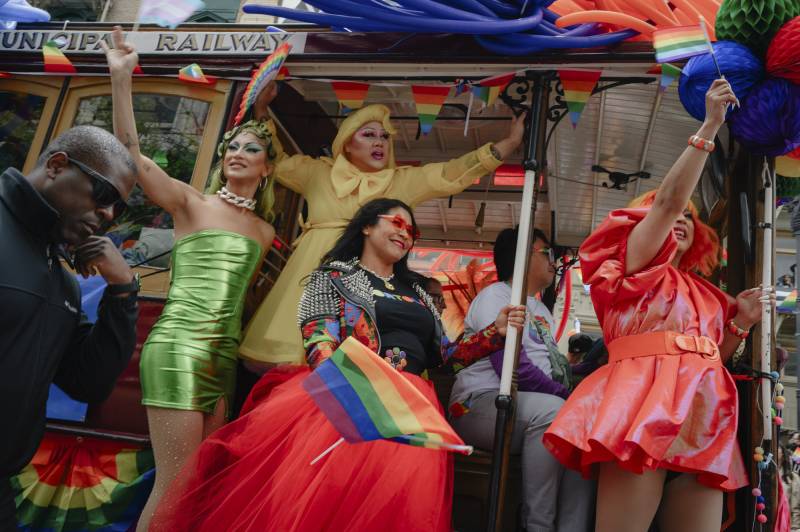
The parade, with over 200 contingents, began at Beale Street near the Embarcadero at 10:30 a.m. Sunday morning and continued up Market Street, leading to the Pride festival at Civic Center Plaza with music and activities, food and family areas, and a lot of partying. Nonstop pumping music blared from speakers and from various instruments in the streets as members of community organizations walked and activist groups chanted messages about anti-discrimination and civil rights. The music included a full marching band playing “California Love” and a performance from a Brazilian Carnaval dance and percussion company called Fogo Na Roupa.
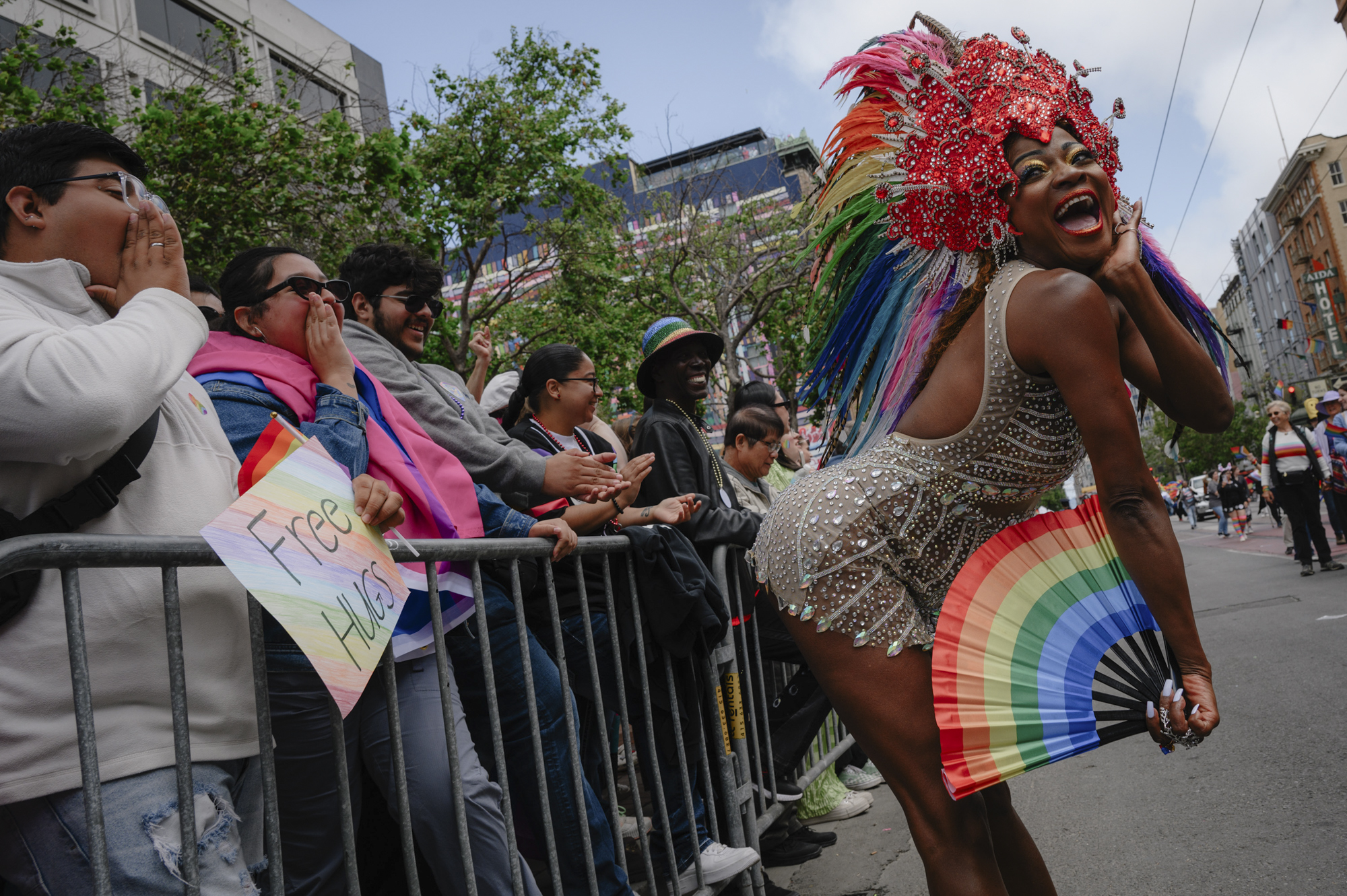
This year’s Pride parade took on added significance in the face of an unprecedented spate of anti-LGBTQ+ bills introduced in state legislatures across the country, increasingly conservative federal judges, and a U.S. Supreme Court that overturned Roe v. Wade last year — along with ongoing attacks on LGBTQ+ individuals nationwide that has been called a “state of emergency” by Human Rights Campaign, the largest LGBTQ+ advocacy group in the U.S.
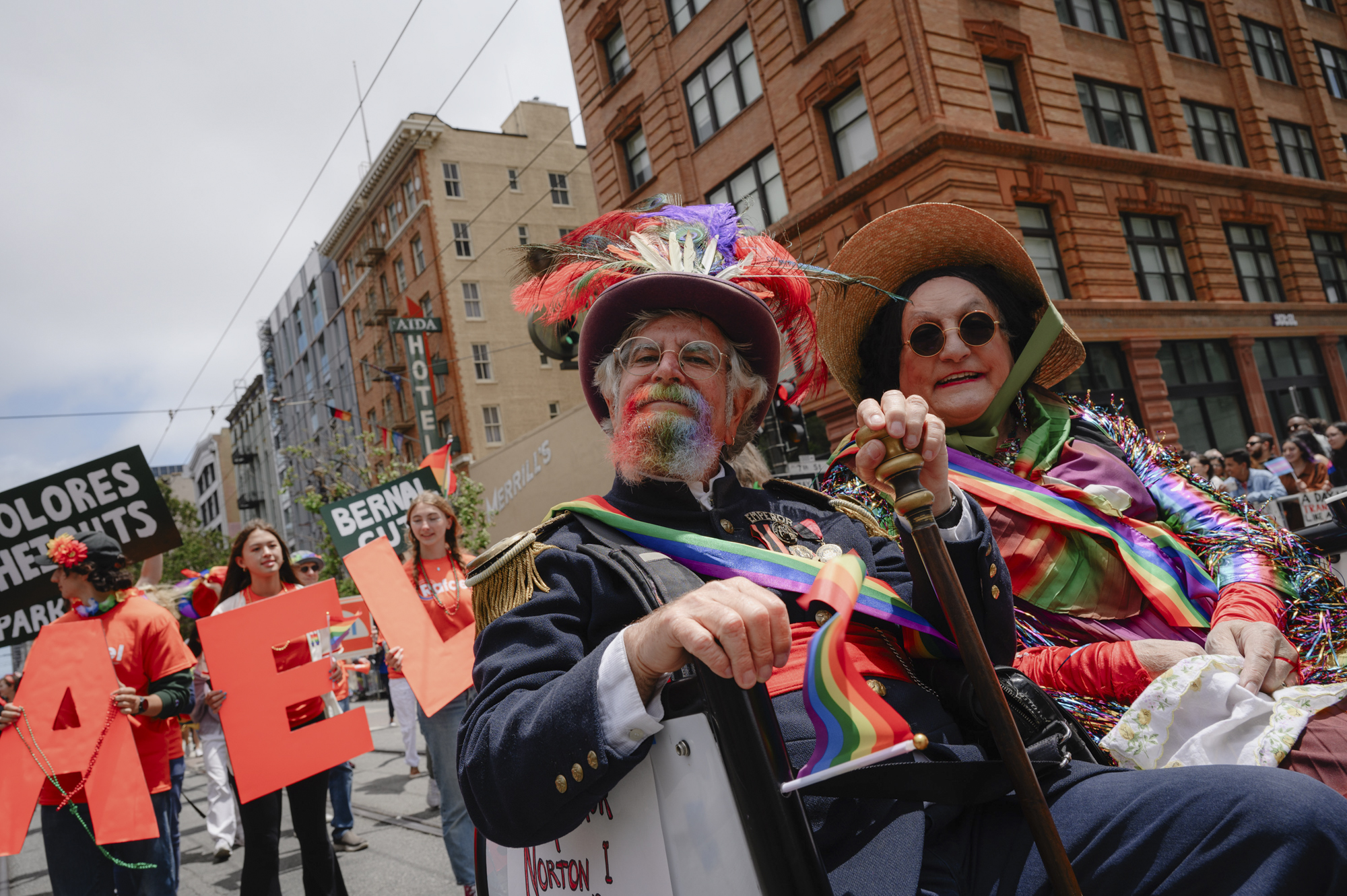
“The shameful competition within one of America’s formerly great parties to see who can more dehumanize the trans community, is a grave danger and a damning statement about the state of our country,” said U.S. Rep. Adam Schiff (D-Burbank) regarding Republicans nationally targeting LGBTQ rights during the annual Alice B. Toklas LGTBQ Democratic Club Pride Breakfast on Sunday.
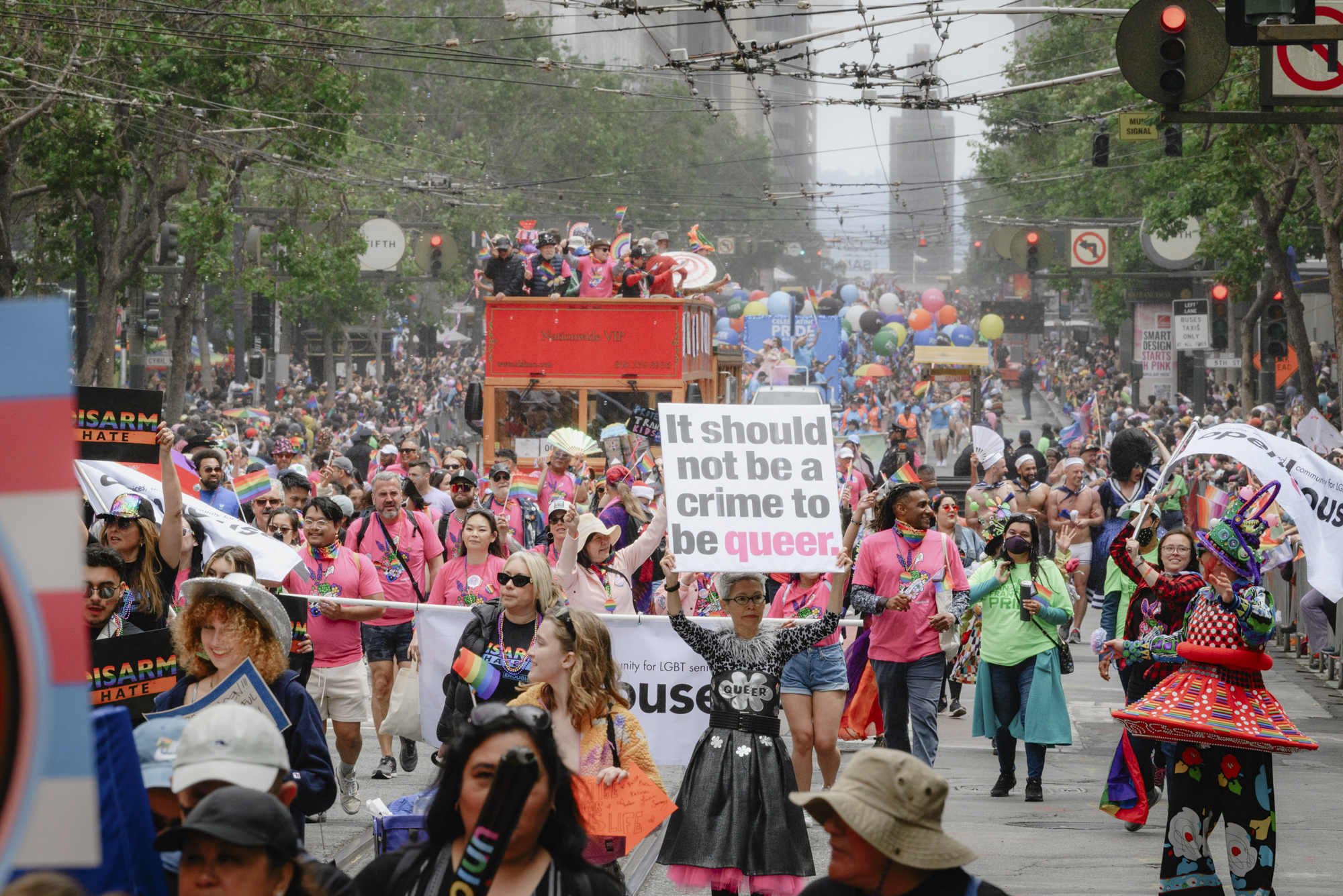
“Pride means more this year than ever,” said Gwenn Craig, former president of the Harvey Milk LGBTQ Democratic Club who also was a campaign manager for Harvey Milk in the “No On 6” campaign in 1978. “We didn’t expect a regression in our movement, in the civil rights that we had achieved. It’s enraging. We’re having to fight again. It’s really exasperating. But here we are still at it.”
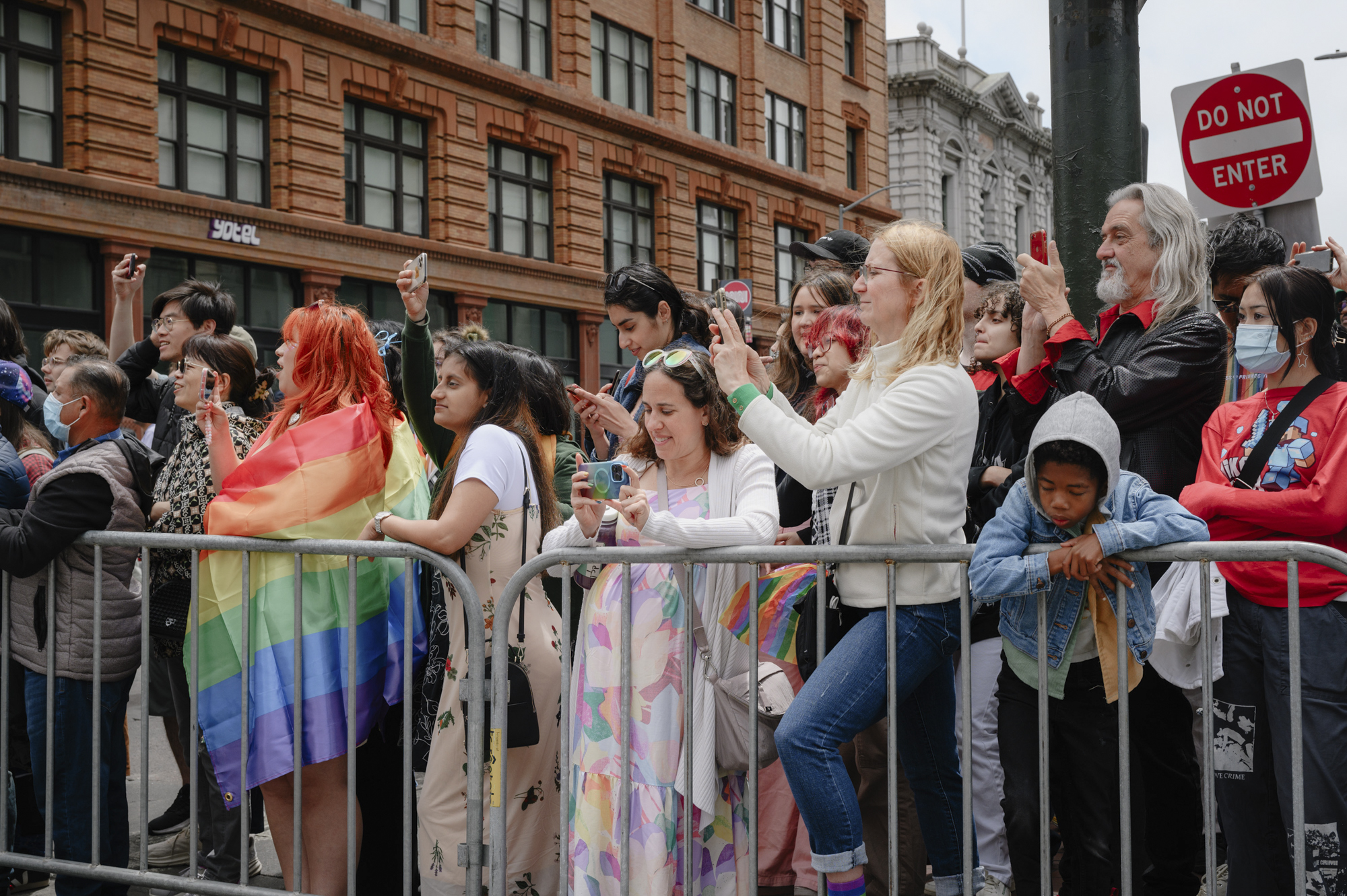
Sunday’s Pride parade is the traditional annual climax to Pride Celebration weekend, held on the final full weekend of June, also known as Pride Month in San Francisco, a four-week festival of conferences, shows, concerts, parties and political events dedicated to the celebration and advancement of LGBTQ+ rights and identity.
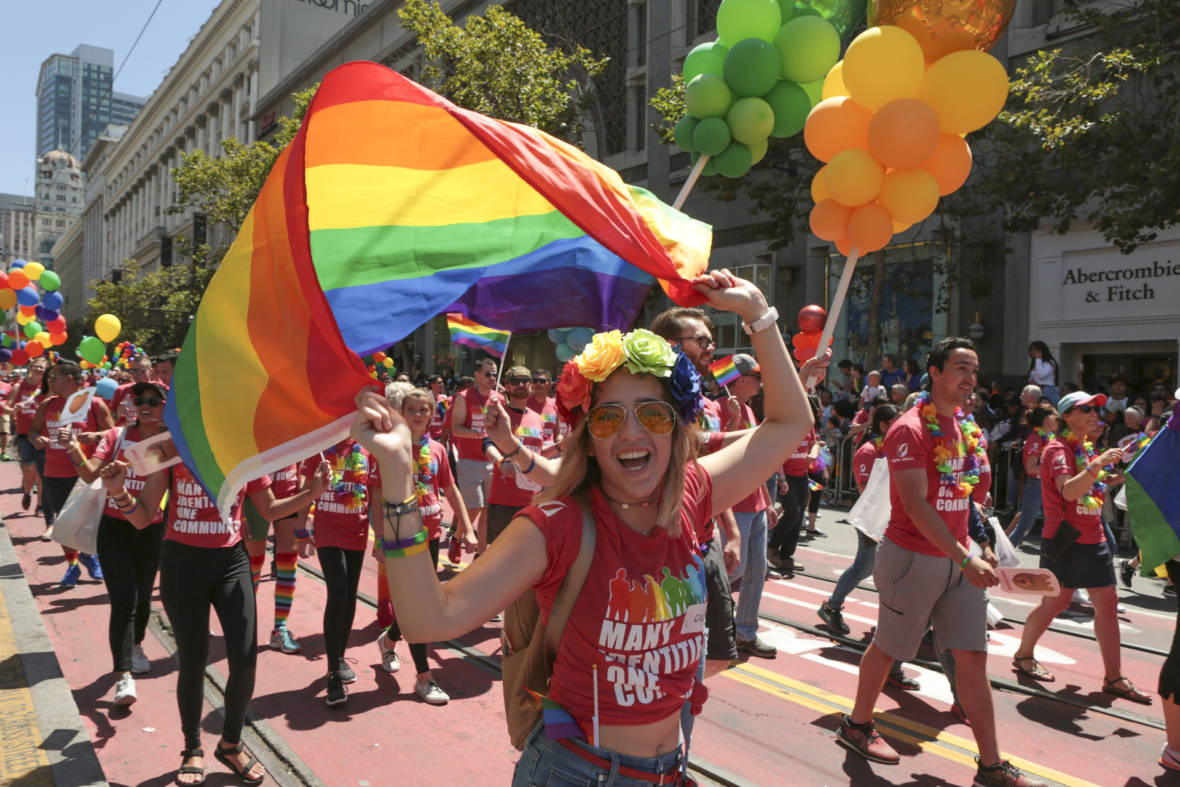
Paul Aguilar is a Lifetime Achievement Grand Marshal of the San Francisco Pride parade, a recognition earned for his many years of advocacy for those — like him — who live with HIV and AIDS, to which he’s lost many friends. He’s been attending pride marches since the mid-70s, and says his first Pride experience was “life-changing.”
“There was one unmistakable feeling, and that was the feeling of acceptance. This was my tribe. This is what I’ve been looking for. These were my people,” said Aguilar. “We danced that pain away, and that insecurity away, and that anger away. And now we dance to remember those we’ve lost and to celebrate them. That’s also part of Pride.”
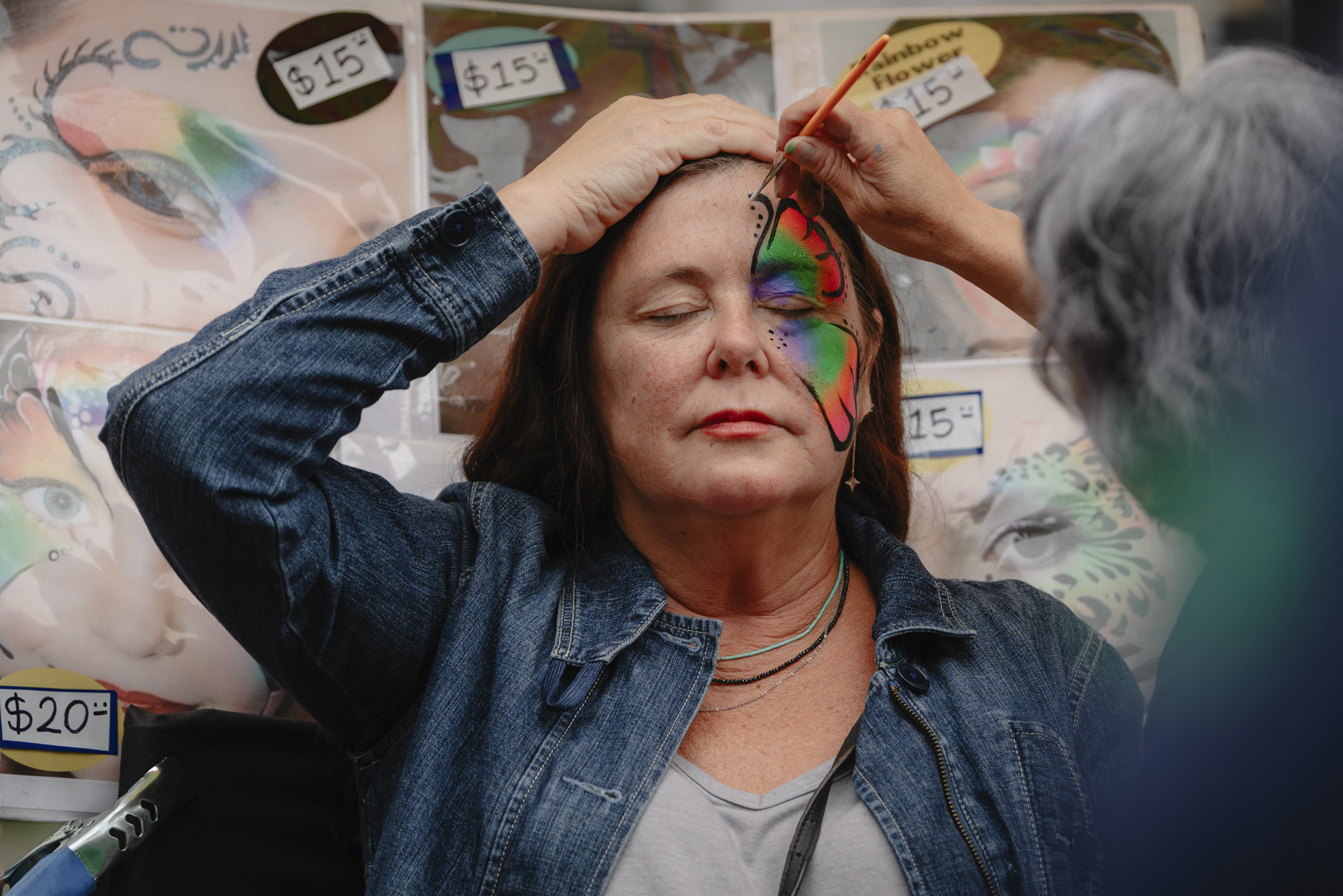
The Pride Parade is not without its controversies, including the issue of corporate sponsorship, with many feeling that these have no place at a Pride celebration, and also because some corporations — like Target and Bud Light — have backtracked on their support when faced with a backlash.
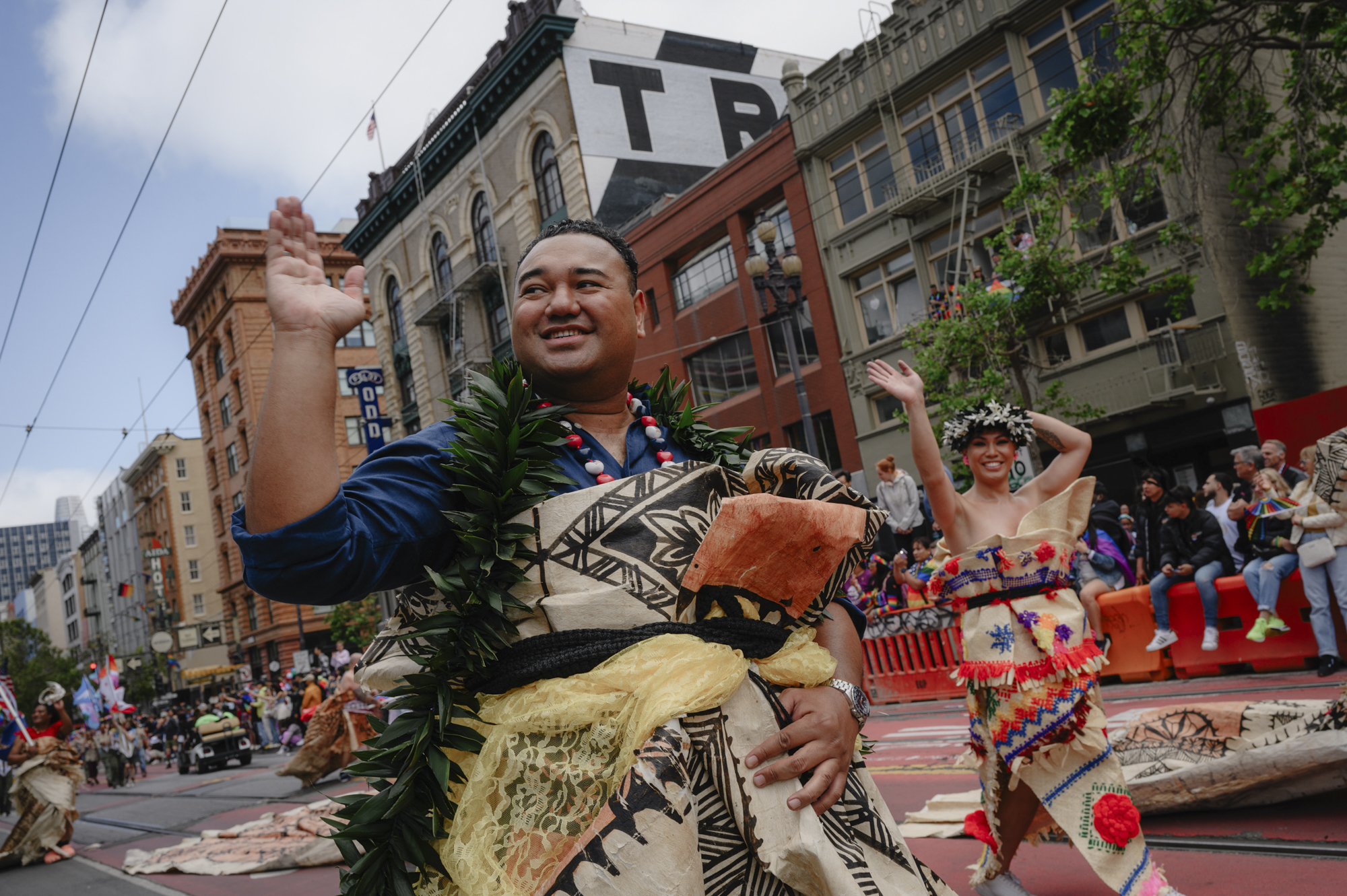
Amy Sueyoshi, who is provost and vice president of academic affairs at San Francisco State University and a former member of the SF Pride board, said she thinks the founders might indeed consider today’s Pride organizers to have “sold out” and said that even today, many who attend are shocked at the level of corporate sponsorship. However, she also thinks that the Pride celebration in San Francisco has really shown how the queer community and queer liberation “can be a mainstream movement,” and that it “demonstrates how corporations and cities can invest in queer liberation and in gay pride and not have any detrimental consequences.”
Sueyoshi warned against taking Pride for granted.
“As much as we all can be critical of pride … the truth is that so many people come to San Francisco not just for queer liberation, but for other types of home that the city provides as well,” Sueyoshi said. “And so it’s important, I think, to invest in that.”
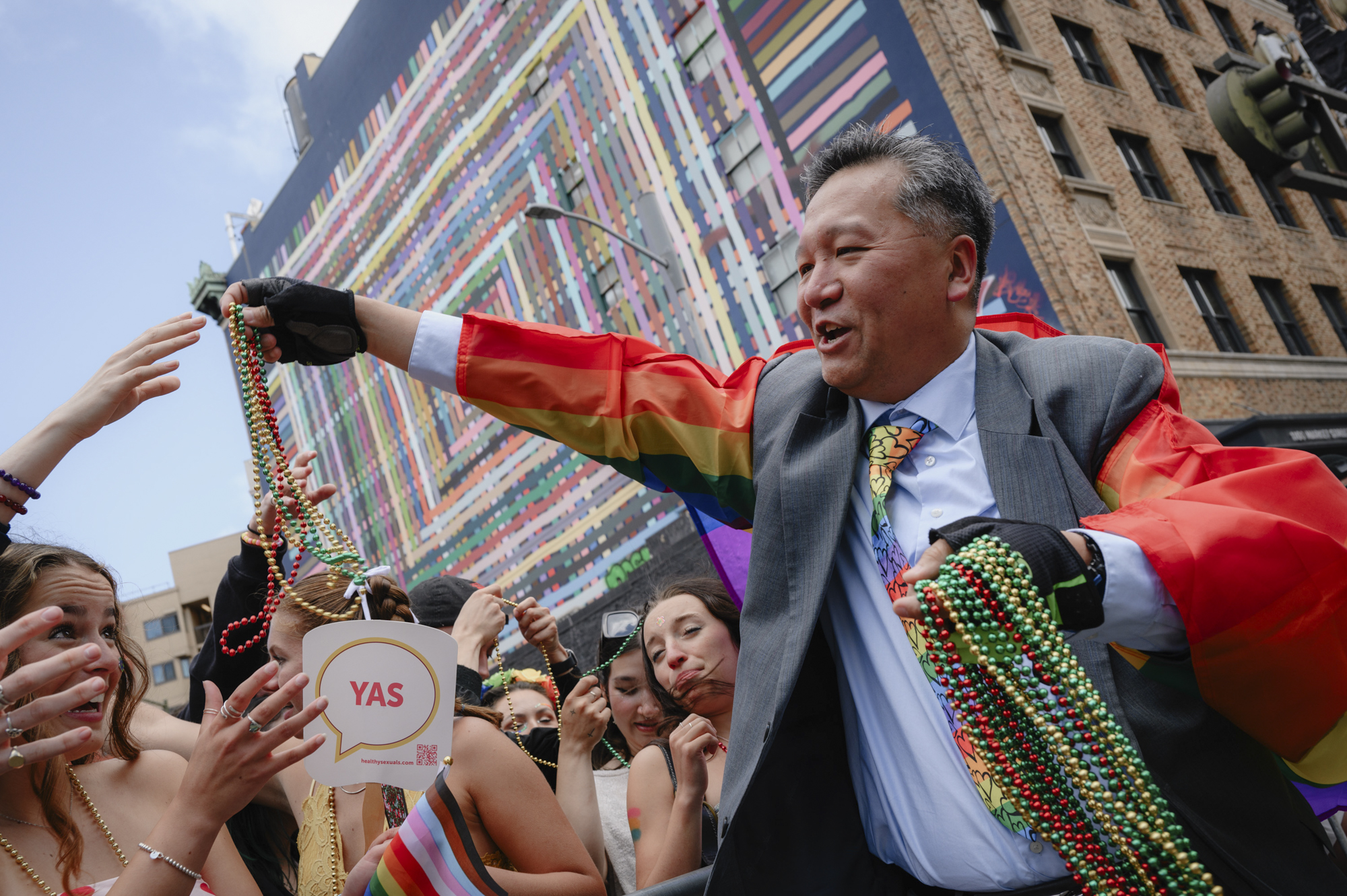
Another controversial issue involves the police. Many in the LGBTQ+ community object to uniformed SFPD officers marching — even if they are LGBTQ+ — citing a history of abuses committed by law enforcement against the LGBTQ+ community. Nevertheless, the compromise reached between San Francisco Pride and the SFPD last year held firm for 2023, whereby on-duty members of the SFPD Pride Alliance march in uniform while others march without uniforms.
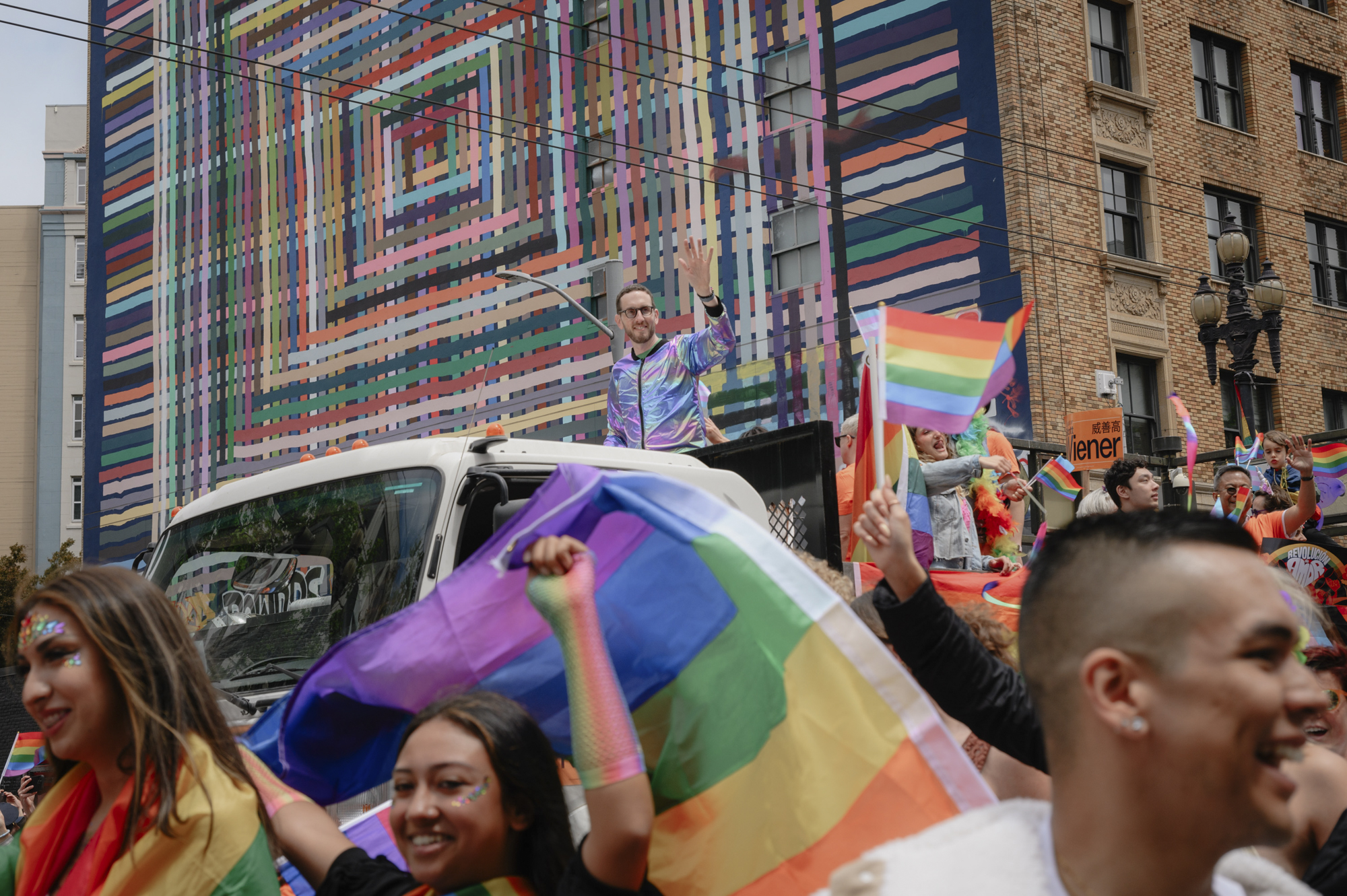
But more than anything, Pride is about celebration and the joy of just letting loose and being who you are.
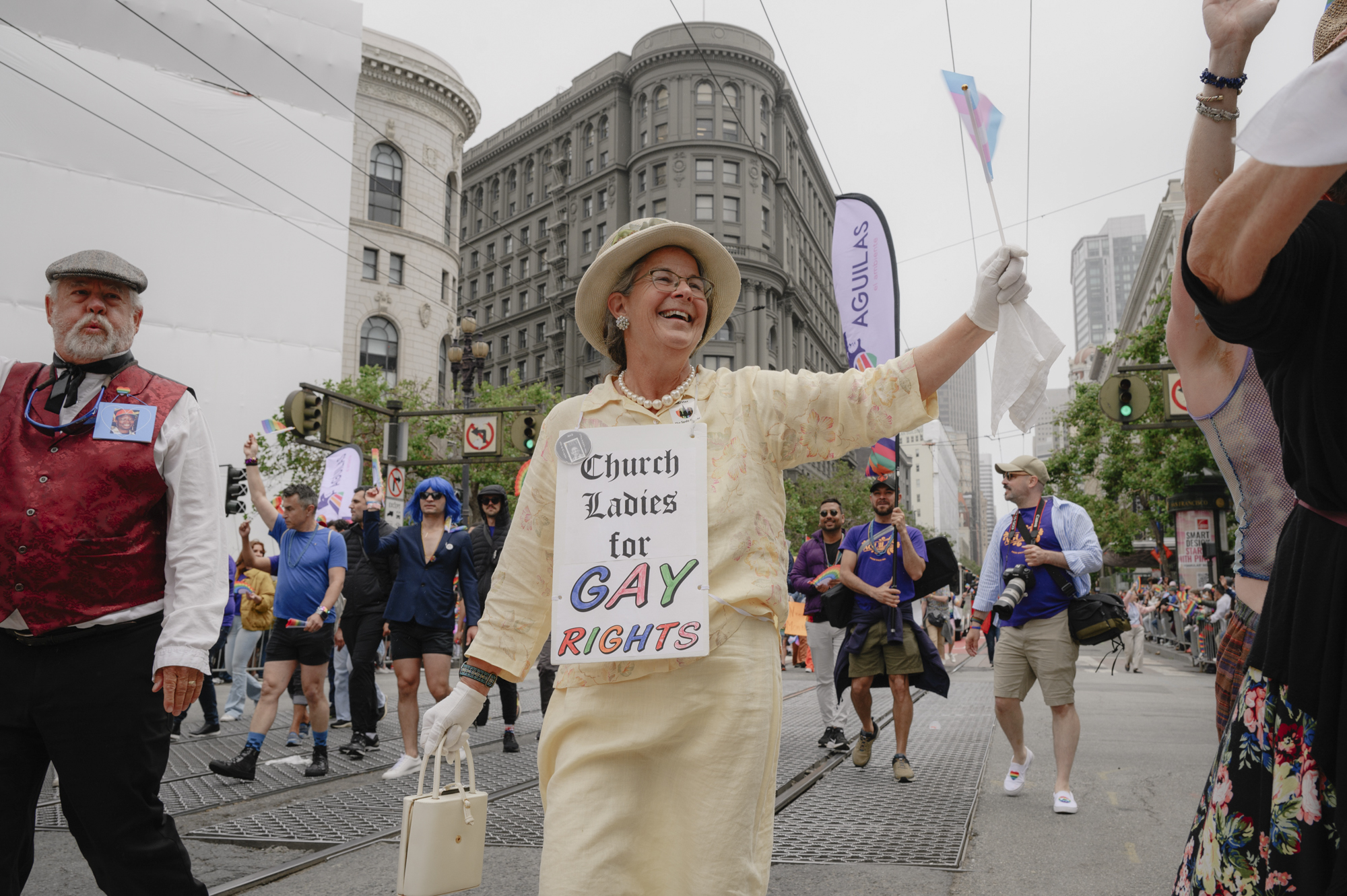
“We support gay marriage, we support trans marriage, we support LGBTQ rights,” said Cathy Webber, a member of the Church Ladies for Gay Rights group that marched in the parade. “A lot of churches don’t, and we believe that that’s wrong.”
Sam Douglas from Oakdale said the parade was an opportunity to push back against discrimination.
“With everything that’s been going on in the past few months, this is just another way to say s—- it, honestly, it’s for everyone else and saying, ‘you know, we can’t have this again,'” said Douglas. “I know there’s been a lot of hate towards LGBT and like I think that this [parade] is just the opposite of that and it’s nice to see that a lot of people are against [hate].”
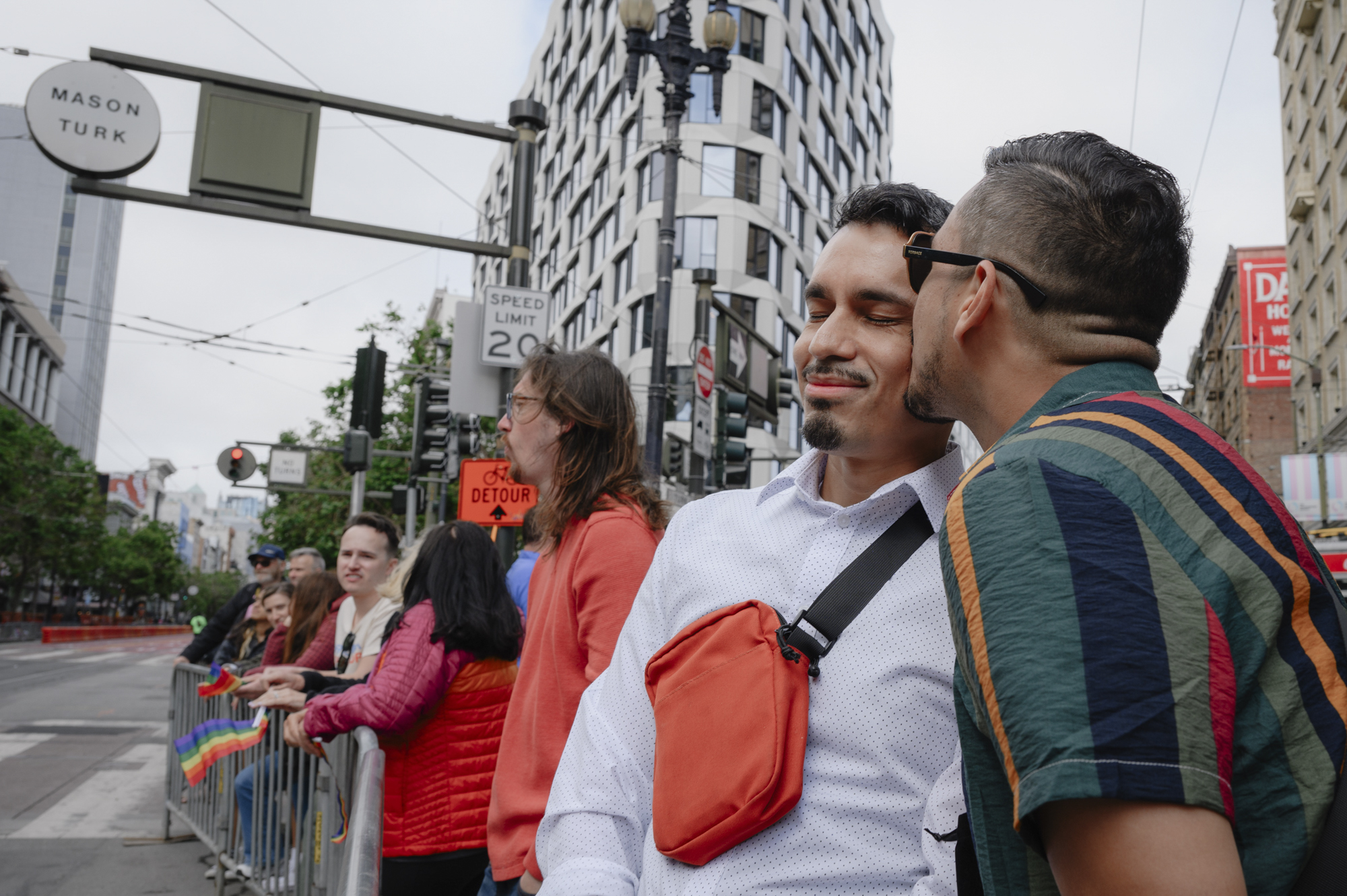
Hector Topete attended the parade for the first time with his partner Angel Vidaña.
“This is a very new experience for me. So I was very nervous at first, but within minutes, I just felt so comfortable being myself around [Angel],” said Topete. “What I like about being right here, right now is I just see myself as a normal person. I don’t see myself as being different. I just feel like I’m someone who belongs.”
KQED’s Rachael Vasquez, Annelise Finney, Kelly O’Mara, Lakshmi Sarah and Attila Pelit contributed reporting to this story.
